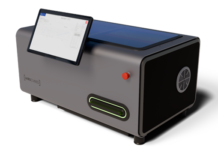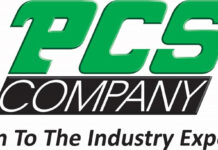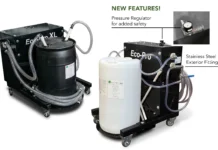Press release submitted on behalf of Stout.
In a conversation presented at the 2023 MAPP (Manufacturers Association for Plastics Processors) Benchmarking and Best Practices Conference, Michael Benson, Managing Director in Stout’s Investment Banking group and co-head of the Plastics & Packaging Group, spoke on cross-border M&A trends within the plastics industry, their impact, and why international transactions may provide unique aspects for both buyers and sellers.
He was joined by three other finance professionals:
- Michael Molling – Senior Vice President, Rosti North America
- Karl Stillman – Vice President Strategic Business Development, Rosti Group
- Mike Walter – Division President, DEMGY
Over the past two years, 94 cross-border deals have taken place in the industry, demonstrating a surge in international interest. A decade ago, international buyers often lacked interest and competitiveness, but today, they often need an international presence and thus actively engage in M&A. They frequently offer compelling terms regarding timing and pricing, and they present themselves as valuable partners that often operate an attractive hands-off management style. These buyers also bring synergies, including access to additional customers, markets, technologies, and more.
The panelists discussed why each of their companies opted for a cross-border transaction.
A Buyer’s Perspective: Rosti Group
Rosti, a Swedish plastic injection molding company, aimed to establish a presence in North America. Many of their largest customers were deeply intertwined with the North American market, and it became increasingly evident that Rosti was missing out on valuable opportunities due to the absence of a physical manufacturing presence in North America.
Rosti opted for an acquisition strategy rather than building from scratch. They sought a company that possessed technological sophistication and embraced automation while maintaining a high-quality infrastructure. Plastic Components Inc. (PCI) fit the description perfectly.
Karl Stillman played a lead role in pursuing PCI and facilitating the transaction. He said, “A cross-border transaction was the perfect decision for establishing a strong North American presence. We were able to realize the strategic opportunities of a manufacturing presence in North America without needing to construct it from the ground up.”
As an added advantage, Rosti introduced an international internship program in which European students could work in North America. This initiative attracted top-tier talent and provided the individuals with an opportunity for international exposure and growth.
PCI underwent name changes to transition to the Rosti brand, moving first to an interim name, Rosti PCI, before transitioning fully to Rosti. Business operations remained the same. Since Rosti purchased the stock of PCI, many back-office operations such as banking and payroll remained largely unchanged, and the name change did not significantly impact the employees or customers.
A Seller’s Perspective: PCI
PCI has been sold twice, initially with the aid of Stout’s Investment Banking services to Morgenthaler Private Equity (MPE). Around five years later, MPE initiated another selling process and sold PCI to Rosti.
For PCI, selling to Rosti, an international buyer, presented a permanent home and the promise of synergies that could drive the company forward. The company could avoid undergoing recurring transactions associated with the buy-and-sell cycles of private equity, and it could receive the necessary support for capital expenditures required to sustain the aggressive growth trajectory they had been on. Plus, an international buyer would provide access to global markets.
To ensure cultural alignment, PCI facilities were toured by Rosti representatives, and the management teams spent extensive time together as they worked out the sale. This comprehensive interaction revealed that Rosti and PCI shared both core values and a strikingly similar vision for business growth, with a central focus on prioritizing their customers and upholding exacting standards for their facilities using automation.
Through these discussions, PCI’s leadership ensured that ownership under a substantially different time zone with potential language barriers would not jeopardize its established operational consistency.
Michael Molling, Senior Vice President, Rosti North America, served as the CFO of PCI before the acquisition. He said, “A cross-border transaction allowed us to find a buyer that could support our aggressive growth while ensuring cultural alignment, which was a must-have for us as we looked at potential buyers.”
DEMGY Group: A Family-Owned Legacy
MET Plastics, a family-owned business near Chicago, searched for a transaction that would provide liquidity without necessarily engaging in a formal selling process. It was purchased by DEMGY Group, a France-based plastics company.
MET Plastics leadership primarily focused on ensuring that the management of the business would continue to run smoothly, preserving the essence of their family’s legacy. Cross-border transactions aligned particularly well with this goal, as many international buyers seek an intact overseas business that can operate fairly independently of the parent.
Mike Walter served as the President of MET Plastics before the acquisition. He explained, “With the cross-border transaction, we were able to achieve the liquidity we sought while also securing access to new markets. Most importantly, our buyers safeguarded the continuity of our company’s identity and independence, allowing our family legacy to continue as we wanted.”
Cross-Border M&A Can Be a Pathway to Success
The three companies represented by the panelists demonstrate the opportunities that cross-border transactions can provide to both buyers and sellers, including shared core values and access to global markets and resources.
Mike Benson said, “For many companies, cross-border M&A is not just a strategic move, but a pathway to success in today’s interconnected world.”
Michael Benson, Managing Director, Stout






